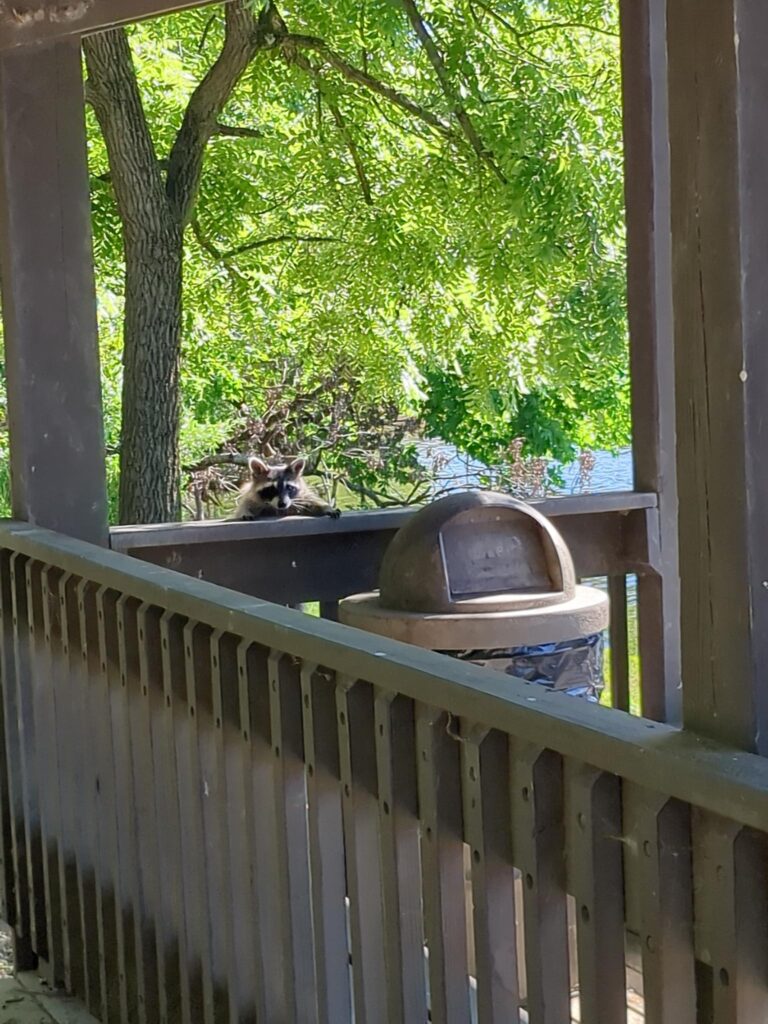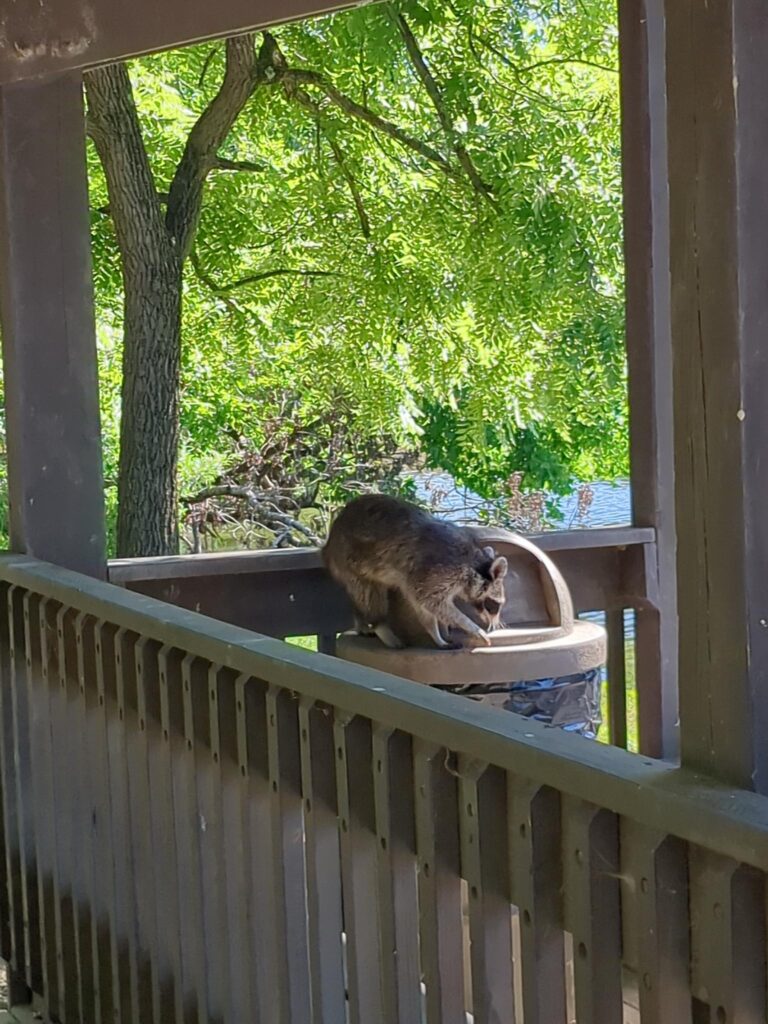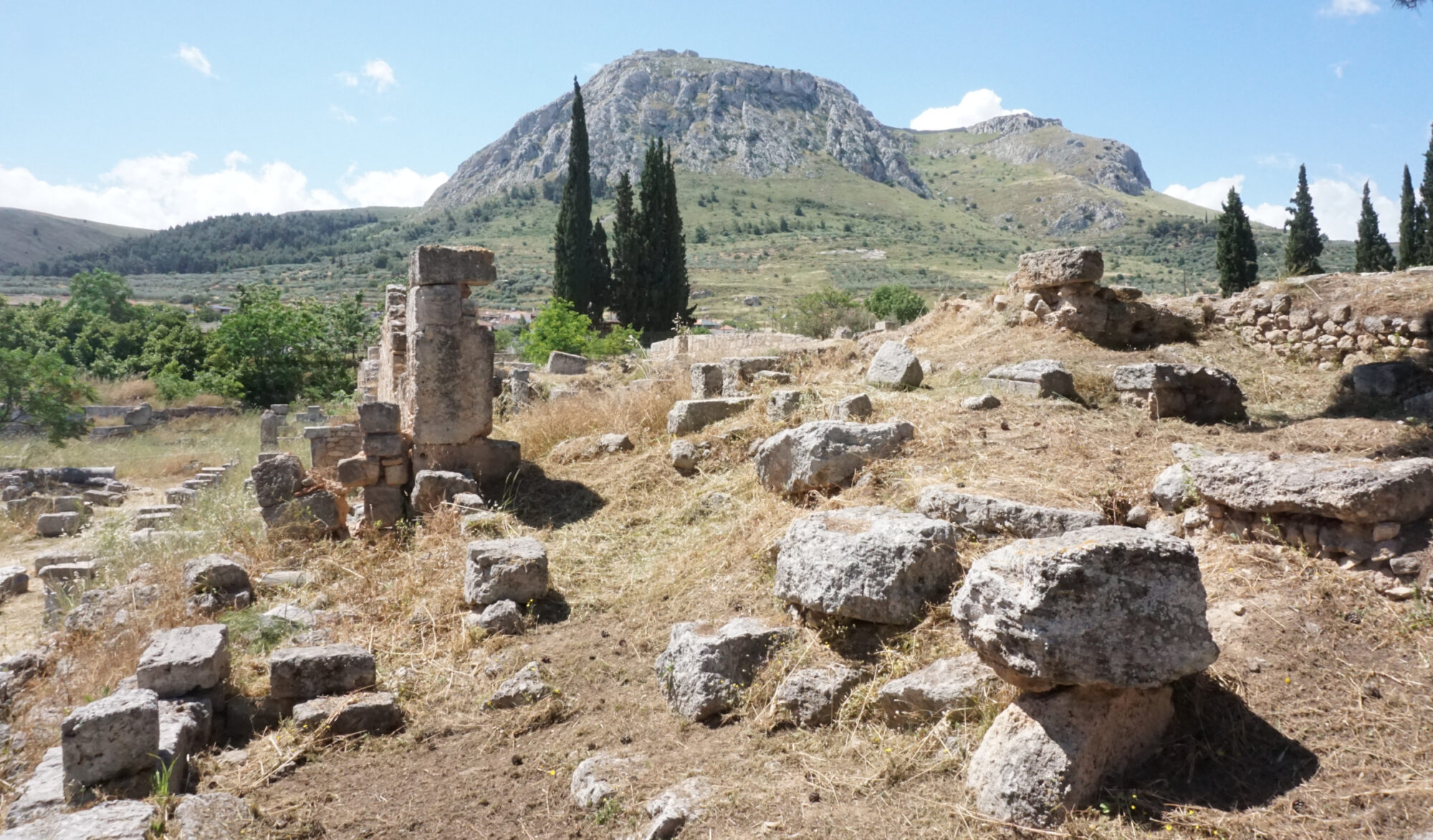


Psalm 51:11–13 (ESV)—Cast me not away from your presence, and take not your Holy Spirit from me. Restore to me the joy of your salvation, and uphold me with a willing spirit. Then I will teach transgressors your ways, and sinners will return to you.
A beautiful day beckoned with sunshine and seventy-degree weather. So my husband and I drove to a local state park, where we established ourselves on the dock, with camping chairs and books.
A few chapters into my book, I heard a shuffle that stole my attention from reading. Given no other people on the dock with us, I turned my head toward the sound.
A raccoon climbed onto the top of the trash can, pressed open the lid, disappeared inside, and came out dragging trash and discarded food. It hauled its meal into the overgrowth of trees and bushes.
Not a long time later, it emerged again, head peeking out from tall grasses. The creature scurried the same path to the trash can, climbed the wooden railings and onto the receptacle, then pushed open the door and emerged once again.
Watching this masked bandit, I thought it seemed ultra familiar with the location and ins and outs of this receptacle. Now, I wonder about the health of this (undeniably cute) trash thief. It takes the path back and forth from human food to natural home in the trees. The food fills its stomach, but it doesn’t receive its daily nutritional needs.
Like the raccoon, I sometimes find myself digging in the trash (metaphorically, of course) to try to find sustenance. For example, after a vacation, my hubby and I often hash out our trip. “What could have gone better” is an often-discussed topic, like that bedroom in the shared condo where we had to walk into the hallway for the bathroom. Affordable but awkward, to say the least. By the end of our nitpicking, I usually end up with a furrowed brow and a bad feeling. Not good for my mental health, for certain.
Our spiritual health also suffers when we try to find nutrition in the past rather than in the present in the presence of God. When we pull a sin from the trash, we’re tempted to pick it apart and mull over the negative aspects. Going back and forth to the same thing over and over again isn’t healthy.
Fortunately, this psalm of David shows us a better way of examining our sin: in light of God’s mercy and grace. Our past sins don’t hold us in the past but rather, when treated properly, sustain our spirit now and in the future. Our repentance puts praise on our tongues that can motivate others to seek the same forgiveness. A lesson that reaches further than any nitpicking of “what could have gone better.”
The better is in the sustenance of the Spirit, and only God’s love and mercy can help us find peace for our sins.


